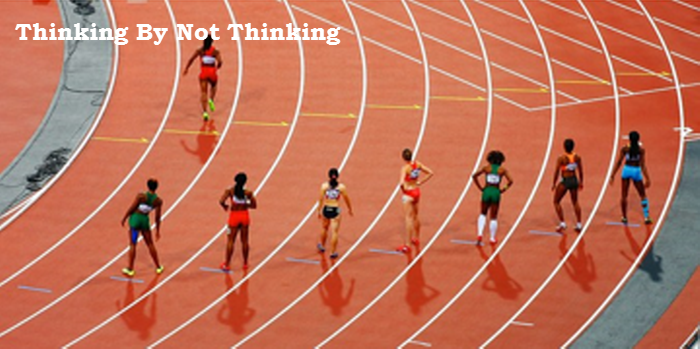 Thinking by not thinking sounds confusing. How can you think by not thinking? And why would you want to “not think?”
Thinking by not thinking sounds confusing. How can you think by not thinking? And why would you want to “not think?”
Sian Beilock is professor of psychology at the University of Chicago. She wrote a book titled “Choke” many years ago and discussed many aspects of choked/poor performance of people who were expected to do well but didn’t under pressure. Her meaning of the word “choke” is “poor performance at critical moment.”
We all have that moment. I had it before and probably you experienced it at sometime or another in the past. It may be the final exam at your school, or it may be your important dream job interview with the company’s HR manager. It may be your final game of your regular season and the consequence of losing the game is disastrous. For an Olympian, it may be the moment whether or not your performance brings you the expected gold medal.
Professor Beilock wrote the following ways:
—As we get better and better at performing skills, our conscious memory for how we do gets worse and worse.
—Those who rely too heavily on their pre-frontal cortex may miss unexpected events precisely because they are not getting as much benefit from the brain areas best equipped to process the outside world.
— Internal monologue of worries leads to chokes.
— Stress creates reduced working memory.
— Don’t think just do. When you are not thinking you do the best.
She had an interview and spoke about choking with TVOntario:
When you are working, the best ideas always come when you are least expecting them. People internally know that anything made by a (thinking) human is not perfect, while anything made by natural intuition without thinking is perfect. It is interesting to know that you can perform better when you are not consciously thinking. Conscious thinking makes us choke and gives us less desirable results than unconscious approach.
For me, conscious thinking means analytical and logical thinking. While logical and critical thinking is considered “critical” and important, the outcome is not always fruitful. On the other hand, the intuitive unconscious thinking has many benefits to get the best performance. The difference? The unconscious is effortless, automatic and close to natural flow compared to conscious and analytical effort every step of the way.
If you have practiced and prepared enough for the important event, let your intuition carry the weight and let your natural flow take over. The practice and preparation have built an internal blueprint and files it away in your subconscious. It is packed with lots of power, both physical and mental. When it is time to perform at that important event the blueprint takes over the conscious effort and automatically resorts to the intuitive consciousness created through practice and preparation and kicks the performance into high gear.
